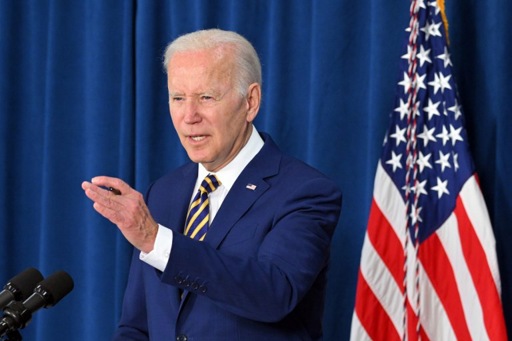The US government was convinced back in October 2021 that Russia was planning an invasion of Ukraine. But their warning fell on deaf ears in Europe, a reconstruction of events from The Washington Post shows.
An emergency meeting took place in the Oval Office between President Joe Biden and his leading diplomatic, military and intelligence advisers in October 2021. Referring to satellite images of troop movements, intercepted messages and interviews with local sources, Biden's advisers were convinced that Russia would attack Ukraine in the winter, although they couldn't say the exact date of the invasion.
The findings have been revealed by a reconstruction of the runup to the war by The Washington Post. It draws on American, Ukrainian and European high-ranking politicians and officials.
The US National Intelligence Director Avril Haines visited NATO headquarters in Brussels to warn Western allies of the threat of a Russian invasion. Only the British and Baltic states took the American alert seriously while other NATO countries (notably France and Germany) questioning whether Russia would invade and if so, doubting the scale of the offensive predicted by the US.
Post-Afghanistan mistrust
EU diplomats ignored the US alert due to American intelligence services' miscalculation of how the Afghan government would deal with the withdrawal of American troops. This damaged EU faith in US intelligence, defence specialist Sven Biscop of the University of Ghent told De Morgen.
Moreover, the announcement of a potential Chinese invasion of Taiwan also turned out to be exaggerated.
Related News
- War in Ukraine: Six killed, 16 injured in Russian attack on Kharkiv
- Lithuania wants Europe-wide ban on tourist visas for Russians
- Ukraine threatens to dismantle 'illegal' bridge linking Russia to Crimea
The disagreement also caused confusion in Ukraine. "Put yourself in our shoes," Ukraine Foreign Minister Dmytro Koeleb told The Washington Post. "You have the US on the one hand telling you something that is totally unimaginable and on the other everyone saying, we don't think it will come to that."
President Zelenskyy said the warnings were taken seriously but that the Ukrainian government would have dug its own grave if it had followed all US announcements. "Had we communicated that everyone had to put money away and stock up on food, we would have lost $7 billion a month from October onwards. If the Russians had attacked us then, they would have conquered us in three days."
Diplomatic solution
Washington kept stressing to their European allies their hope for a diplomatic solution but seemed to have given up hope by the end of 2021. Instead, the Pentagon transferred helicopters from Greece to Poland and bolstered forces in the Baltic. Over the next few months, the US expanded its military presence in Europe from 74,000 to 100,000.
Europe continued to hope for a diplomatic solution right up until the invasion, though President Biden admitted to reporters on 8 February that he was convinced of a Russian attack. Meanwhile, France's Macron – who was gearing up for the French presidential elections –announced two days later that after a phone call with Putin that there was an opening for a diplomatic way out.
Emmanuel Bonne, Macron's chief advisor, is said to have danced with joy after the call. Yet barely a day later, Putin ordered 'peacekeeping troops' go to the Donetsk and Luhansk regions, as he recognised them as independent. On 24 February, Russian troops invaded Ukraine, just as the White House had predicted.

